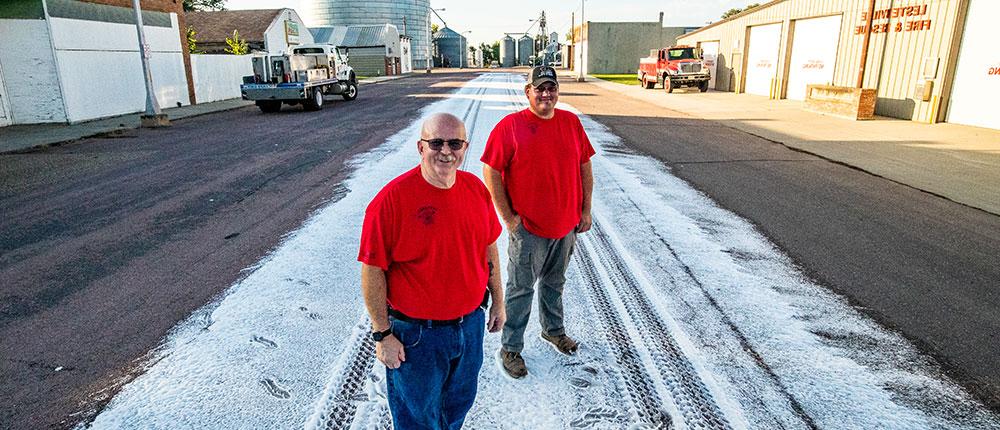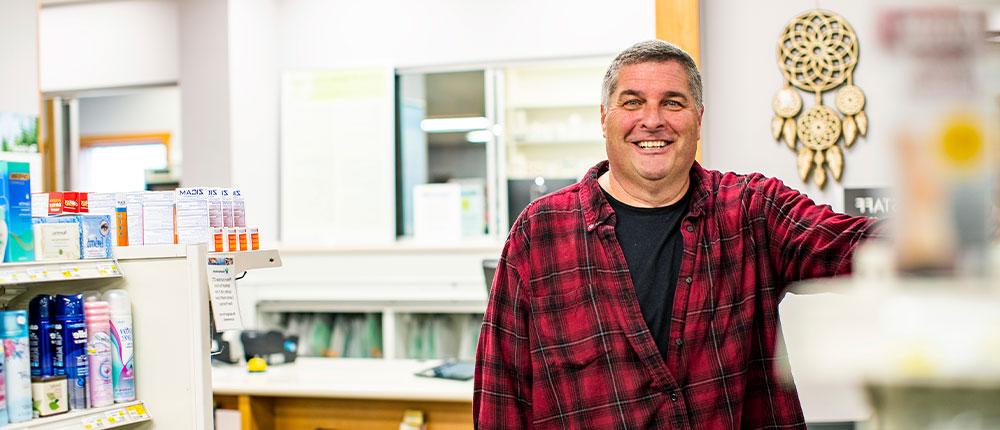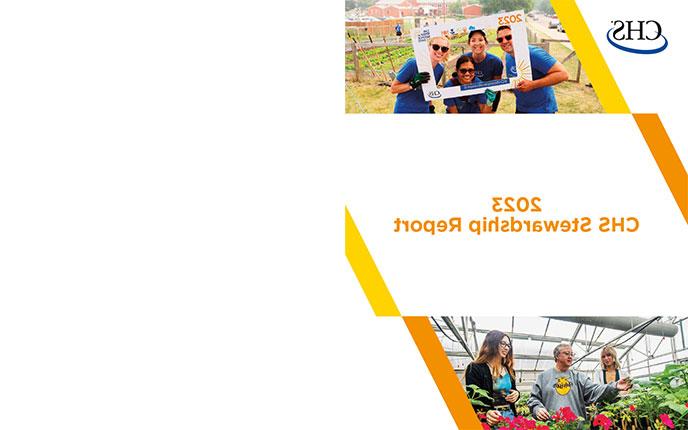Giving for good: Volunteerism in rural America

Rancher Koy Holland helps enrich his Montana community and champions equestrian causes.
Cooperative spirit is alive and well in rural America
There’s unmistakable pride in Colorado wheat farmer Brian Starkebaum’s voice as he talks about his town of Haxtun, a no-stoplight community of about 1,000 in the northeast corner of the state. Starkebaum describes how residents banded together when a storm ripped through the town, devastating homes and businesses.
“Everybody was involved, and nobody asked for recognition,” he says of the cleanup efforts. “The people here bend over backwards to help each other out. I wouldn’t live anywhere except small-town America.”
That sentiment is shared across communities in rural America — communities that rely on the goodwill of their people, including farmers, ranchers and cooperative employees, to keep them strong and vibrant. From farmers who donate crops to local food banks to the Minnesota cooperative that recently held a last-minute cookout to welcome and care for National Guard troops, cooperative spirit shines bright in communities across rural America.
Why Get Involved?
The personal benefits of volunteering are endless, from improving mood to reducing stress and providing a sense of purpose, according to the Mayo Clinic. Volunteering is often credited with helping people manage chronic illnesses and regular volunteers are more likely to be in good health than those who don’t volunteer.
But it’s community benefits that drive Koy Holland, a rancher in Dillon, Mont., to devote countless hours to giving back. As a member of his local school board, a wrestling referee, a 4-H mentor and a founding member of the University of Montana Western equine program, Holland devotes his time to those organizations and others that can help the next generation.
“Someone once told me there are givers in this world and takers. I reckon myself a giver,” says the father of three. “I want to spend my time helping organizations move forward to make our community a better place."
Cooperative Spirit
As core members of their communities, cooperatives can help identify needs and champion causes. Nearly 25 years ago, when George Secor became CEO of Sunrise Cooperative in Ohio, he saw the important role the cooperative played in lifting up the people and causes in his community. As a sponsor for the nonprofit horse therapy program Riders Unlimited, he helps provide vital funding, plus connects the organization to other potential resources, including securing a CHS Seeds for Stewardship grant, which matches cooperative donations for local organizations.
Cooperatives are built to help those they serve, and cooperative employees are often active members of their communities. That cooperative spirit was especially evident this year as COVID-19 made its way throughout the world.
- Wisconsin’s Medford Cooperative eliminated fees for online grocery orders, helping residents save nearly $10,000.
- With people out of work and kids home from school, Farmers Cooperative in Nebraska recognized its community’s food shortage and employees raised nearly $17,000 for the Food Bank of Lincoln, which serves 16 counties in southeast Nebraska.
- CHS SunPrairie in North Dakota donated nearly 550 N95 masks for use by local medical professionals.
These stories are among hundreds of examples of people stepping up in their communities during the pandemic.
Celebrating What Makes Communities Special
In 2019, the Cenex® brand launched a unique grant program by asking Cenex branded dealers what makes their hometowns special. CHS offered to make $5,000 community contributions to support those events, traditions and organizations. As of summer 2020, the program has donated $200,000 to rural communities in 11 states. To learn more about how Cenex is celebrating towns and traditions across America, visit cenex.com.
Next Generation
Farmers and ranchers credit programs like 4-H and FFA with teaching them the value of leadership and community service.
“In FFA, I found joy and satisfaction in helping people,” says Holland, who served as a state FFA officer. “If organizations like 4-H and FFA hadn’t been around when I was young, I don’t know if I would be as active in my community. We need leaders who are teaching our kids about the value of giving back and being involved.”
Getting the next generation involved in organizations is a passion for Colorado’s Starkebaum, who has seen a generational gap in the boards he serves on.
“It’s extremely important for young people to get involved. Organizations need new ideas and new ways of thinking,” he says. Starkebaum credits the generations before him for being examples of volunteering and says it’s never too late to get involved.
“There’s a huge benefit to being involved. Start small and pick your passion. Whether an organization is related to ag or not, farmers and ranchers have a duty to enrich our communities.”

Cheese for good
In March 2020, as the COVID-19 pandemic closed schools and restaurants across the country, demand for milk shrank and milk prices plummeted.

Everyday heroes
At River Valley Cooperative, which is based in Davenport, Iowa, and serves farmer-owners and customers in eastern Iowa and western Illinois, more than 20 employees are part of local firefighter brigades in their community.

A cooperative's calling
When George Secor became CEO of Sunrise Cooperative in Ohio more than 20 years ago, he began searching for a cause he could support personally and through the cooperative.

Steward of land and crop
For generations, Brian Starkebaum’s family has relied on two things: the land and the wheat crop

Speaking up
For many people, running a nearly 20,000-acre ranch and managing more than 2,000 cows would be enough to keep busy. For Koy Holland in Dillon, Mont., that’s just the tip of the iceberg.
Check out the full C magazine with this article and more.





